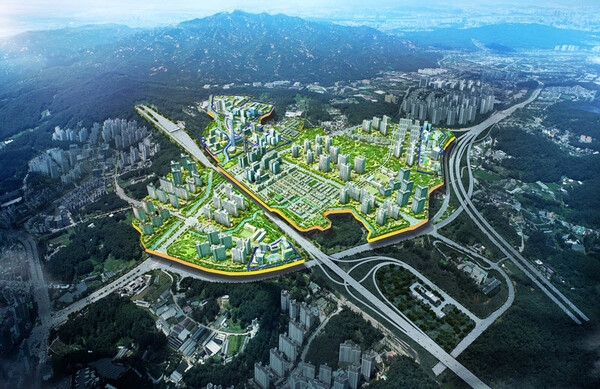Following Pangyo, Magok, and Songdo, Gwacheon is rapidly emerging as a new biocluster candidate.

Korean pharmaceutical companies have recently been gathering in one place to build a Korean-style biocluster, as they can expect synergy effects when R&D personnel and infrastructure are gathered in one place.
Such actions are also aligned with the government's intentions are also aligned as President Yoon Suk Yeol had earlier pledged to create a Korean version of the Boston Biocluster to foster the biohealth industry as the nation's next growth engine.
President Yoon had already said on numerous occasions that his administration will spare no effort to link and coordinate regional bio clusters scattered across the country to help them become competitive.
Yoon also took a number of pharmaceutical and biotech companies with him on his latest state visit to the U.S.
Against such a backdrop, Gwacheon has emerged as a candidate for a new biocluster. The city of has also recently extended a 35 percent reduction in real estate acquisition tax for tenant companies until 2025 through a bill amendment.
In addition to the city's active support, pharmaceutical companies moving to Gwacheon cite the possible synergy between industry, academia, and research and the ability to create synergies by bringing together research institutes of individual pharmaceutical companies to create new drugs as a main benefit of the city.
Notably, companies establishing a base of operation have high hopes to create a synergistic effect with the close-by Seoul National University, the nation's top university, which the companies expect will make it easier to link industry, academia, and research than other clusters.
Also, Korea University Medical Center has been considering building a new hospital in Gwacheon since last year, and if the medical facility moves in, the city will also be able to provide a strong medical basis.
As a result, traditional pharmaceutical companies such as JW Group, Ahngook Pharmaceutical, Kwangdong Pharmaceutical, and Huons are planning to move their research centers and headquarters to Gwacheon this month.
Lesser-known Kyungdong Pharmaceutical and Ilsung Pharmaceutical have also completed their relocation to Gwacheon in March and April, respectively.
JW Group has been relocating to its new building in Gwacheon since the beginning of May.
The new building in Gwacheon will house core affiliates such as JW Pharmaceutical, C&C Research Labs, JW Creagene, JW Life Sciences, and JW Bioscience. The group's headquarters will also relocate to the building.
The company reportedly invested about 120 billion won ($90.6 million) in the building, including land acquisition and construction costs.
The JW Group expects that the relocation will help increase synergy between its companies which had been spread throughout Seoul and Gyeonggi Province.
Ahngook is also building an integrated office building in Gwacheon with an investment of 74.6 billion won. The company expects to complete the building in July of this year to expand its businesses and relocates its core subsidiaries, including AGBio Diagnostics and Ahngook New Pharm.
In the case of Kwangdong, the company will reportedly complete the construction of a research center and new office building by next year.
Huons will keep its headquarters in Pangyo, Gyeonggi Province, but will move its R&D center to Gwacheon.
The company has invested a total of 53 billion won in the building and expects to complete construction by June 2024.

